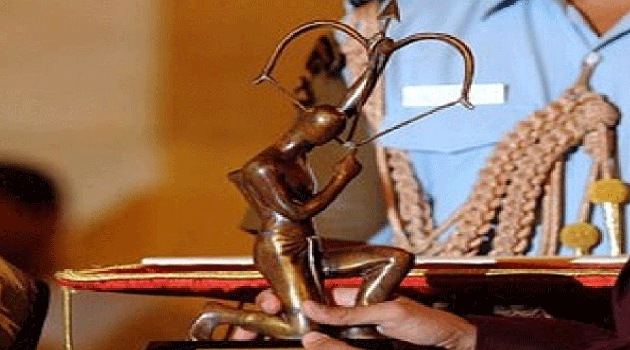Khel Ratna, Arjuna: Authorities should set norms, and athletes their priorities, straight
The announcement of the Arjuna, Dronacharya and Rajiv Gandhi Khel Ratna awards have always attracted controversies and this year was no different with Rohan Bopanna’s angry outburst at the tennis association and Sardar Singh’s nomination
India is a land of ironies, they say, and that seems to reflect on our sporting culture too. How else could one explain the controversies that always accompany the announcement of the country’s much-celebrated awards honouring sporting excellence -- the Arjuna, Rajiv Gandhi Khel Ratna and the Dronacharya for coaches -- presented by the President on National Sports Day (August 29, the birth anniversary of hockey legend Dhyan Chand).

The awards were instituted to honour and motivate Indian athletes and their outstanding coaches. However, every year, once the winners are announced, many athletes/coaches come out crying foul at being excluded. Meanwhile, the sports federations, whose job it is to nominate the right candidates, mess things up with favouritism and skewed criteria that are subjective, or rather, open to interpretations and prone to political influence.
Take this year’s award nominees, announced on Thursday, for instance.
Rio Paralympics champion Devendra Jhajharia and former Indian hockey team skipper Sardar Singh have been nominated for the Khel Ratna. While Jhajharia’s nomination has not raised any flags, Sardar’s inclusion has.
Sardar’s credentials as a player are not in question here. He is currently facing court proceedings for alleged sexual assault on an Indian-origin hockey player from England. Under rules, tainted athletes should not be considered for the awards and Hockey India, which forwarded Sardar’s name, and the selection committee led by Retd. Justice CK Thakkar, which nominated him, seems to have overlooked this critical point.
Then came the angry outburst from tennis player Rohan Bopanna, who was miffed at the All India Tennis Association (AITA), which forwarded just 2014 Asian Games gold medallist Saketh Myneni’s name for the Arjuna award. Bopanna, who won the French Open mixed doubles title this year and reached the bronze medal match at Rio Olympics in 2016, feels he deserves the award too.
In the last two decades or so, Arjuna, Khel Ratna and Dronacharya awards have attracted such controversies and mud-slinging, many alleging that favouritism and political influence are the factors, which eventually earns athletes the awards.
Remember discus thrower Krishna Poonia and Paralympic medallist Girisha Nagarajegowda’s outbursts when they were not nominated for the Khel Ratna in 2015. Triple-jumper Renjith Maheshwary’s Arjuna court battle, which he lost, is another example. Besides, there are many instances of less deserving athletes and coaches, who have the right reach obviously, getting awarded.
Humiliating as it is, the list is long.
One should remember that this happens in a country where there are very few champions of global stature to celebrate and honour. Perhaps the sportspersons should remember that their real fight is not running behind an award which should, ideally, be secondary goal for them. Their emotions and effort should be targeted on the playing field instead.
The sports officials, award juries and the government, should, on their part, try to streamline the system by weeding out political influence as well as ironing out subjectivity in the criteria. It is about time India set a higher benchmark for the country’s sporting awards. They should be given to the best, who have proven their worth on the world stage.
That will make things much more simple, and reduce controversies, if not avoid them altogether. But more importantly, setting such precedents would give out a signal to the athletes too -- to set their priorities and standards straight.





